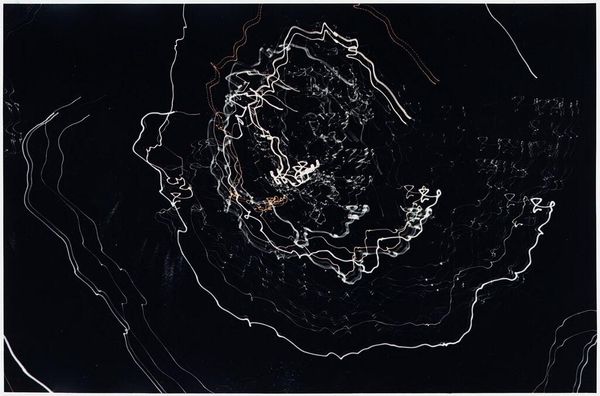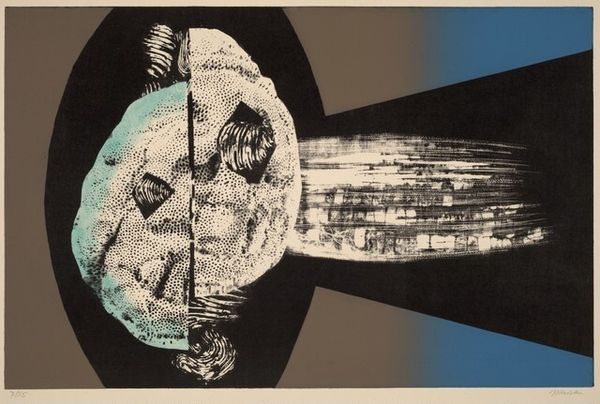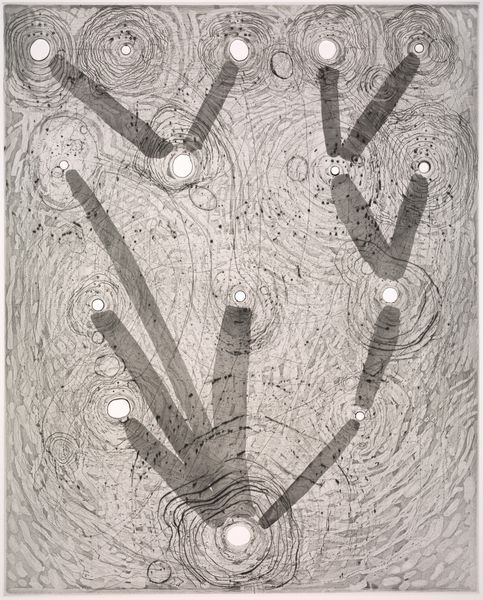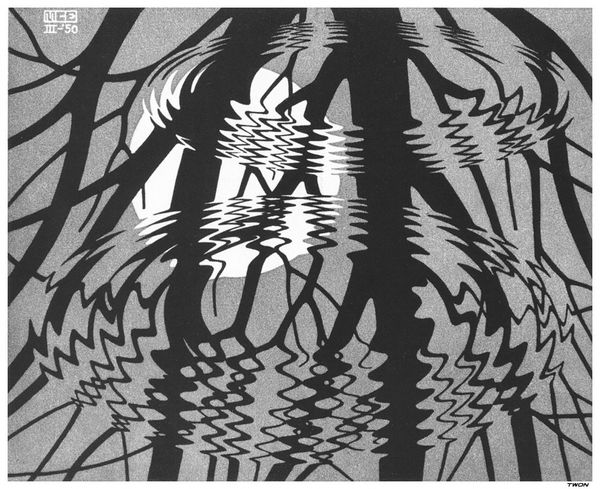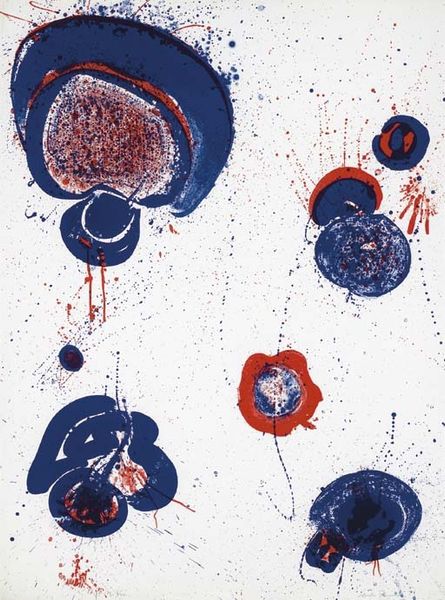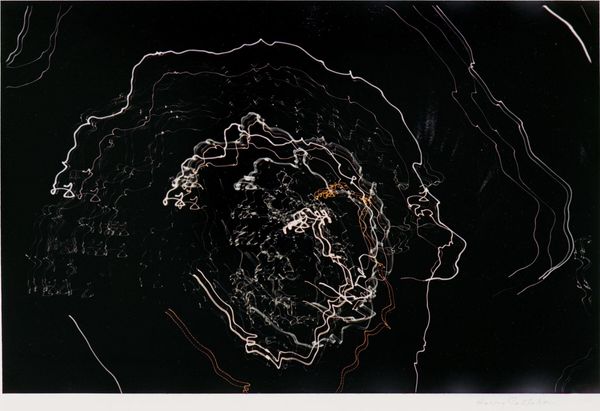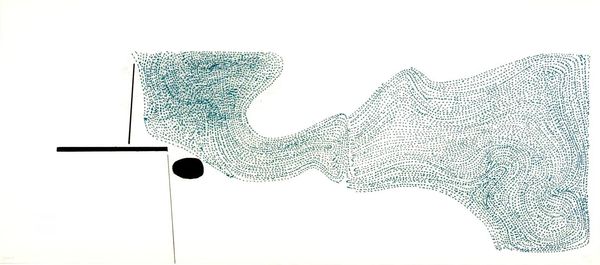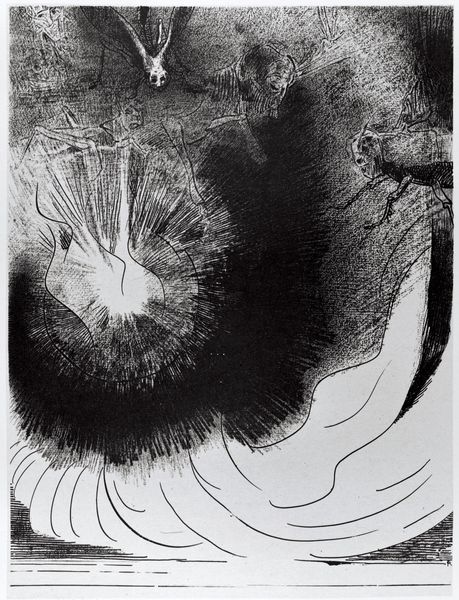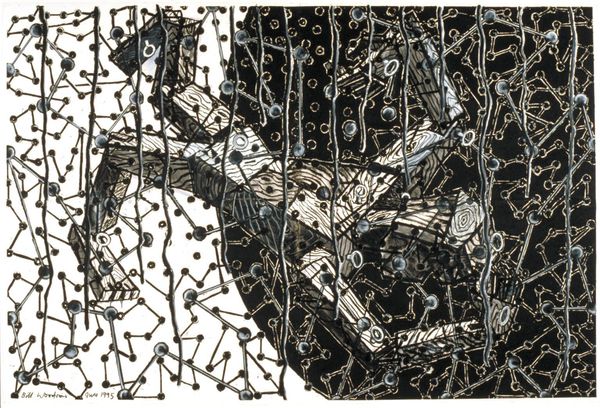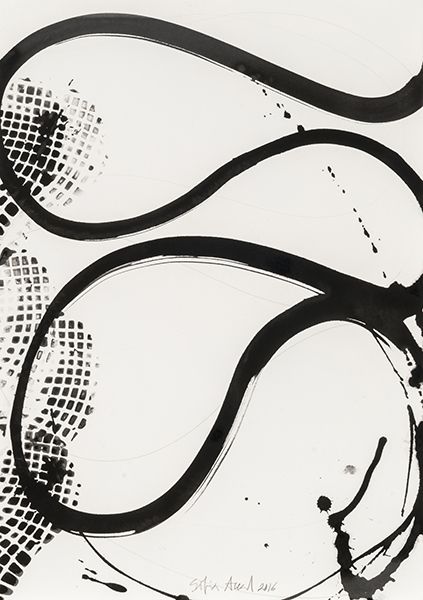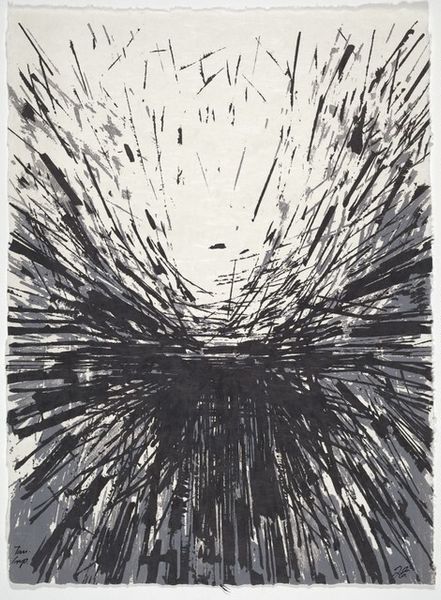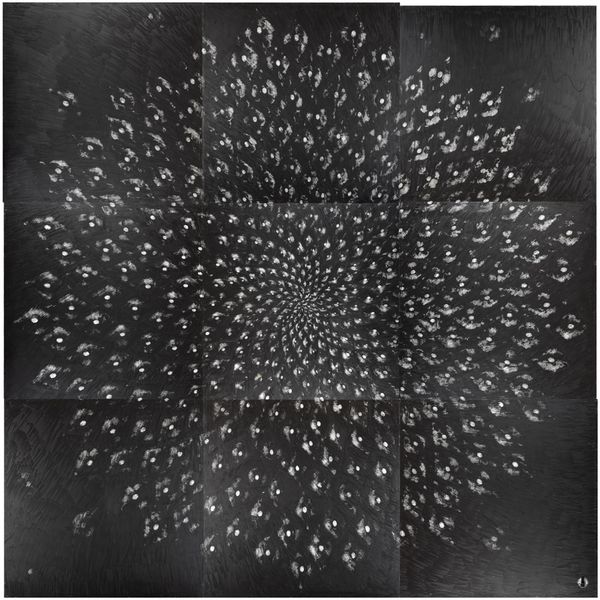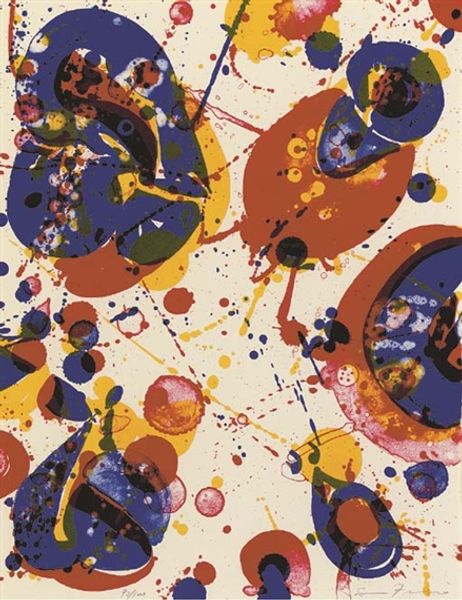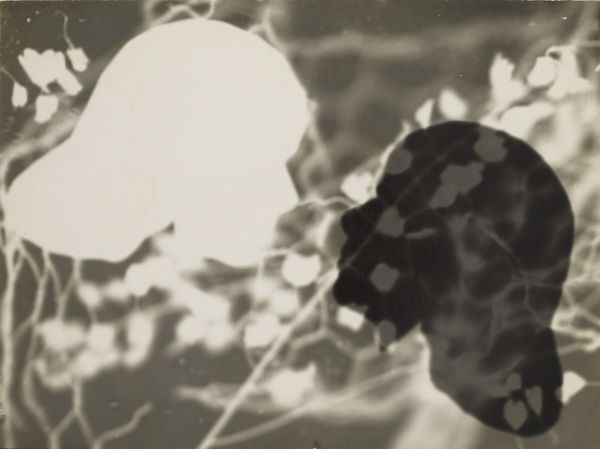
Dimensions: support: 1500 x 2220 mm
Copyright: © Bill Woodrow | CC-BY-NC-ND 4.0 DEED, Photo: Tate
Editor: This is Bill Woodrow's "Wilson's Phalarope," from 1994. I'm struck by its stark black and white composition and the way the lines create a sense of movement. What do you see in this piece? Curator: I observe a sophisticated interplay between line, shape, and form. The converging lines, coupled with the contrasting black circles, establish a dynamic visual rhythm. Note how the bird, rendered with delicate detail, anchors the composition. Do you find the spatial relationships create tension? Editor: Yes, the bird seems almost trapped by the lines. Is there a reason for this overwhelming composition? Curator: The formal elements suggest a deliberate construction of space. The artist’s deployment of perspective and the arrangement of shapes contribute to a complex visual narrative. What does the title suggest to you? Editor: Perhaps the bird is overwhelmed by its environment. I never considered that! Curator: Precisely. Considering both the formal arrangement and the titular reference enhances our understanding. Editor: I see it in a different light now!
Comments
tate 9 months ago
⋮
http://www.tate.org.uk/art/artworks/woodrow-wilsons-phalarope-9403-t07236
Join the conversation
Join millions of artists and users on Artera today and experience the ultimate creative platform.
tate 9 months ago
⋮
Woodrow says that drawing fulfills his need for 'instant reward'. He works rapidly, using oil paint in crayon form. The elements evolve freely, with different layers of representational and abstract images. The drawings frequently incorporate references to geological or biological forms, such as the organic structures reminiscent of cells or DNA models in Untitled (95/04). Although most of Woodrow''s drawings are untitled, one shown here is called Wilson''s Phalarope, which refers to a small wading bird in the bottom corner. Gallery label, August 2004
